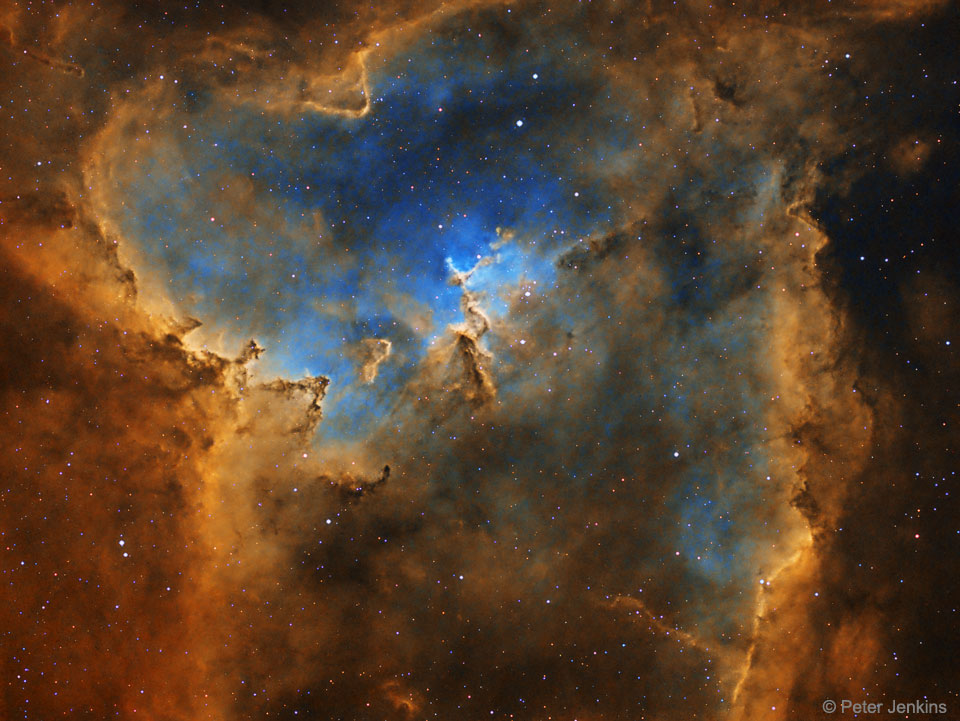The Heart Nebula in Hydrogen, Oxygen, and Sulfur:
Discover the cosmos! Each day a different image or photograph of our fascinating universe is featured, along with a brief explanation written by a professional astronomer.
2017 August 27
The Heart Nebula in Hydrogen, Oxygen, and Sulfur
Image Credit & Copyright: Peter Jenkins
Explanation: What powers the Heart Nebula? The large emission nebula dubbed IC 1805 looks, in whole, like a heart. The nebula's glow -- as well as the shape of the gas and dust clouds -- is powered by by stellar winds and radiation from massive hot stars in the nebula's newborn star cluster Melotte 15. This deep telescopic image maps the pervasive light of narrow emission lines from atoms of hydrogen, oxygen, and sulfur in the nebula. The field of view spans just over two degrees on the sky, so that it appears larger than four times the diameter of a full moon. The cosmic heart is found in the constellation of Cassiopeia, the boastful mythical Queen of Aethiopia .
Tomorrow's picture: double eclipse
< | Archive | Submissions | Index | Search | Calendar | RSS | Education | About APOD | Discuss | >
Authors & editors: Robert Nemiroff (MTU) & Jerry Bonnell (UMCP)
NASA Official: Phillip Newman Specific rights apply.
NASA Web Privacy Policy and Important Notices
A service of: ASD at NASA / GSFC
& Michigan Tech. U.
Photos of Nature, Nature Photography Across The Universe. All about Nature, Love, Travel, Beautiful Photo, Landscape, Sunset, Summer, Mountains, Flowers, Photographer, Wallpaper, Portrait, Photo, what is the Universe
Photos of Nature | Nature Photography What is The Universe
Subscribe to:
Post Comments (Atom)

No comments:
Post a Comment